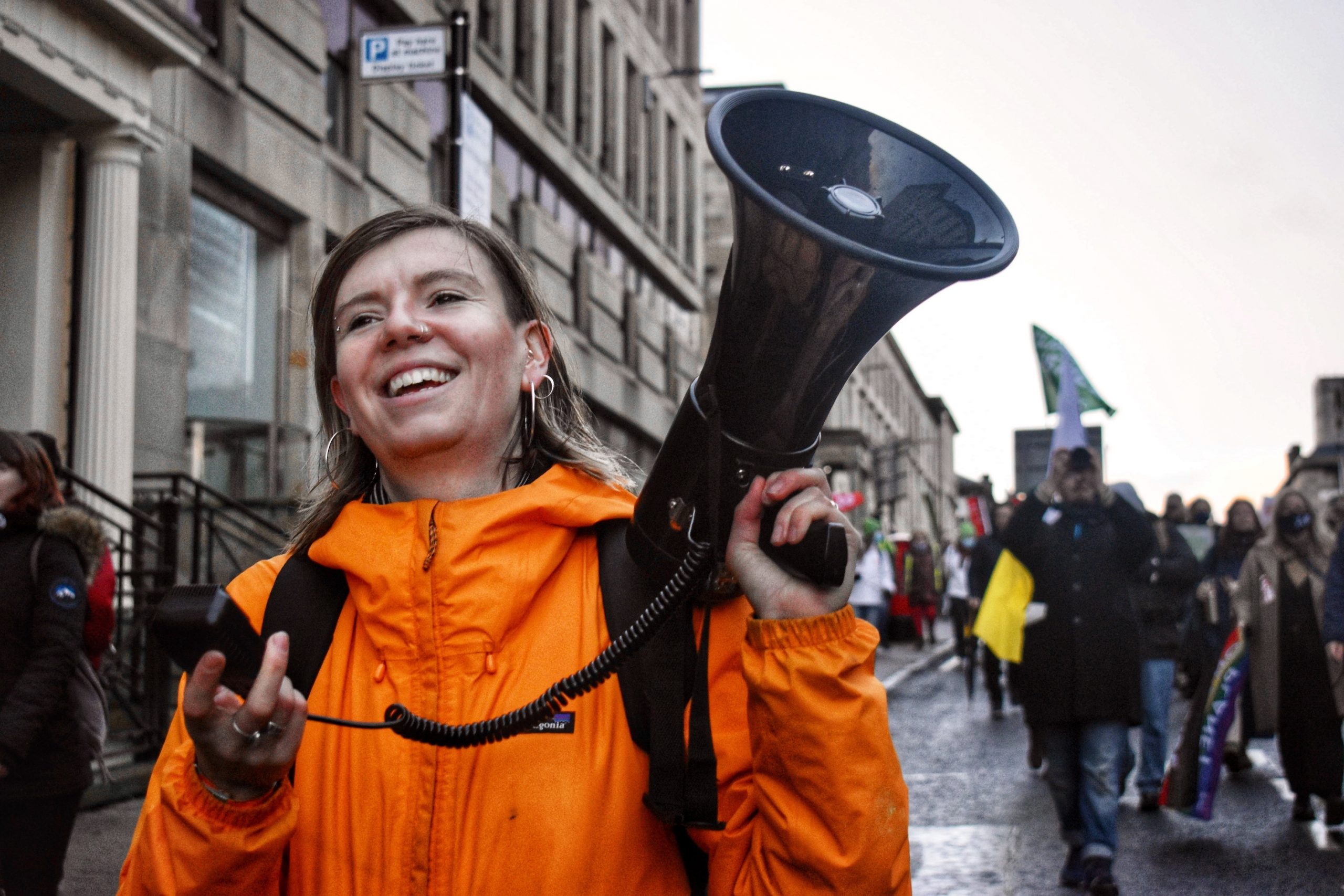
Dart in talks with SEPA over Canonbie fracking permits
Commenting on the news that Dart Energy do not plan to use fracking permits at Canonbie Friends of the Earth Scotland Campaigns Co-ordinator Mary Church said:
“While it’s good news that Dart are in talks with SEPA about giving up their fracking permits at Canonbie, it’s not clear that the permits would have been much use anyway, and there’s nothing to stop them applying again in the future. Dart insist they don’t plan to frack in Scotland, but in Australia up to 40% of coalbed methane wells end up being fracked.
“Unconventional gas extraction is linked to very serious local environmental and health impacts whether or not fracking is used, that’s why the Government in New South Wales, Australia has banned all coalbed methane activity within 2km of communities.
“Thousands of people have objected to Dart’s coalbed methane plans at Airth and now the Council have called for it to go to Public Inquiry so it looks like Dart are getting desperate for a bit of good PR.
“We are calling on the Government to ban all unconventional gas extraction and instead focus on our plentiful, safe and clean renewable energy resources.”
ENDS
Notes to editors
1. Australian company Dart Energy is the leading unconventional gas developer in Scotland. Canonbie is one of its two most advanced sites, and while still in the testing stage, has planning permission for wells at 19 sites. Dart inherited a number of permits to carry out hydraulic fracturing when it bought out Greenpark Energy’s Canonbie assets in December 2011. One of these licenses is for a site at Mouldyhills where no wells have been drilled, the other, for wells at Broadmeadows, has a number of conditions attached to it that would require improvements to be made to the integrity of the wells.
2. Dart’s flagship development at Airth, near Falkirk faces strong community opposition and has been beset by delays. Dart recently appealed their application for 22 new wells, a gas and water treatment facility and a network of pipelines to the Scottish Government on grounds of non-determination. The local community and Falkirk Council have responded by asking the Reporter to hold a Public Inquiry.
3. A study by the Queensland Government found that 44% of the 58 wells tested in 3 fields were leaking http://mines.industry.qld.gov.au/assets/petroleum-pdf/tara_leaking_well_…. Research by the Southern Cross University in Australia found gas was leaking at around 3.5 times the level expected in coalbed methane fields http://www.scu.edu.au/news/media.php?item_id=6041&action=show_item.
4. Dart Energy has pulled out of its Australian ventures following a ban on all unconventional gas activity – not just hydraulic fracturing – within 2km of residential areas introduced by the New South Wales Government. http://www.resources.nsw.gov.au/__data/assets/pdf_file/0008/458018/TOUGH… A conservative estimate suggests there are at least 2,000 homes within 2km of Dart Energy’s Airth development. If a similar ban were in place in Scotland Dart’s development at Airth could not go ahead.
5. The industry in Australia estimates that up to 40% of coalbed methane wells will eventually be fracked. See Australian National Greenhouse Accounts, Coal Seam Gas Estimation and Reporting of Greenhouse Gas Emissions 2012, http://www.climatechange.gov.au/climate-change/emissions/~/media/climate…
6. Methane is a highly potent greenhouse gas that over its short lifetime is over a hundred times more damaging to the climate than carbon dioxide. Research indicates that unconventional gas could be worse in climate terms than burning coal because of methane leakage from gas fields. Seehttp://www.eeb.cornell.edu/howarth/Howarthetal2012_Final.pdf from Cornell University and http://www.nature.com/news/methane-leaks-erode-green-credentials-of-natu… from the National Oceanic and Atmospheric Administration (NOAA) who found that 9% of total gas production at a field in Utah was leaking into the atmosphere.
7. An investigation by a GP in early 2013 of 38 households in close proximity to coal seam gas wells in Tara, Queensland, found that 58% of residents reported definite adverse health effects related to gas drilling and a further 19% were uncertain. Symptoms include breathing difficulties, rashes, joint and muscle pains, nausea and vomiting, and spontaneous nosebleeds. See http://d3n8a8pro7vhmx.cloudfront.net/lockthegate/pages/49/attachments/or…
8. Bans and moratoria around the world
France: A nationwide ban on fracking
Switzerland: A moratorium on fracking was introduced in the canton of Fribourg
Germany: Moratorium in Northrhine-Westphalia on fracking. Lower Saxony likely to do the same.
Bulgaria: Government banned fracking
Czech Republic: A moratorium on fracking, considering outright ban
Spain: Cantabria banned fracking, La Rioja is also currently considering same
Netherlands: Moratorium on unconventional fossil fuels
Denmark: Moratorium on fracking
Quebec: A moratorium on fracking
United States: Vermont banned fracking, and New York has moratorium
New South Wales: ban on any coal bed methane activity within 2km of residential areas, and within critical industry clusters such as winegrowing areas
Ireland: 2-year moratorium on fracking
9. Friends of the Earth Scotland is
* Scotland’s leading environmental campaigning organisation
* An independent Scottish charity with a network of thousands of supporters and active local groups across Scotland
* Part of the largest grassroots environmental network in the world, uniting over 2 million supporters, 77 national member groups, and some 5,000 local activist groups – covering every continent. www.foe-scotland.org.uk
